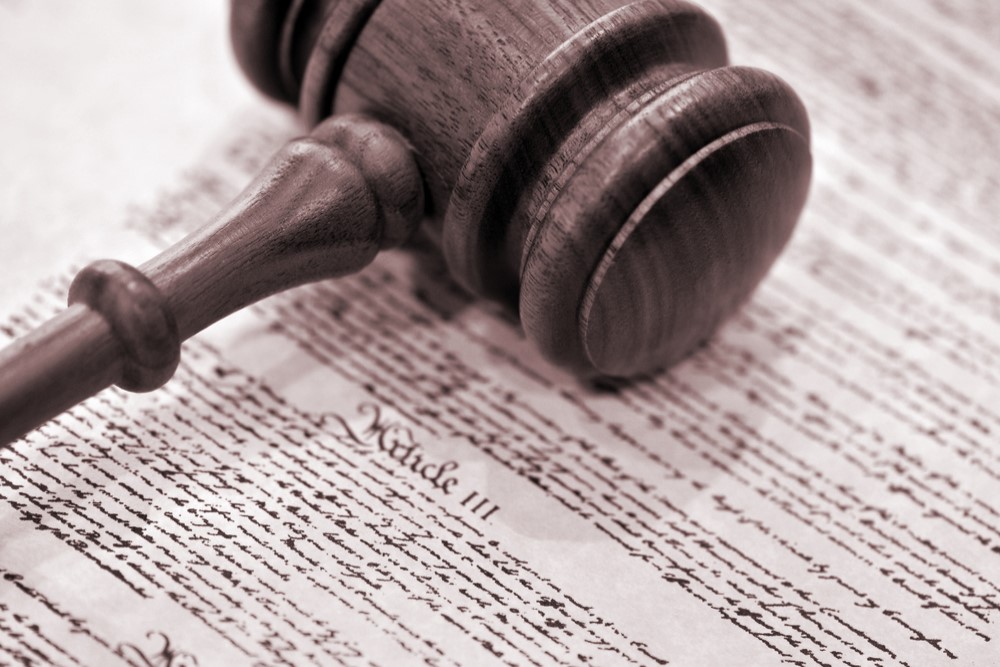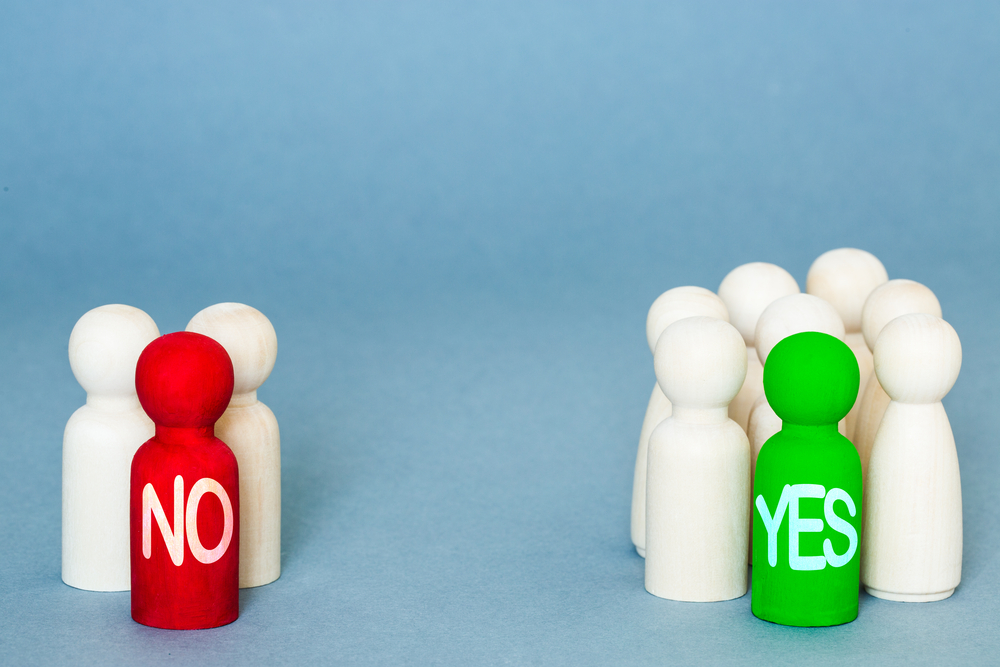In January, Representative Ronny Jackson, a Republican from Texas’ 13th district, a doctor, and a former rear admiral, tweeted,
I’ll NEVER give up my gas stove. If the maniacs in the White House come for my stove, they can pry it from my cold dead hands. COME AND TAKE IT!!
— Ronny Jackson (@RonnyJacksonTX) January 10, 2023
This was in response to a statement by the commissioner of the U.S. Consumer Product Safety Commission that the agency might pursue new regulatory action with regard to gas stoves, given recent research showing that gas stoves contribute to environmental and health issues like asthma. (For a more detailed, and different, take on the issue, see Andrew Conarty’s “Gas Stoves: A Kitchen Culture Clash” also here at The Post.)
It wasn’t just Jackson who had a negative reaction to this, but his response – echoing a popular National Rifle Association bumper sticker – seems especially notable.
Was Jackson saying that we have a right to own a gas stove in the same way as we have a right to own a gun? It’s a good question.
I think the answer, however, is that from an ethical point of view, we do not have a fundamental right to own any kind of physical object – whether it’s a gas stove or a gun.
This is an especially important issue right now. In the last few years, federal court decisions have been an unmitigated triumph for people who sell guns and an unmitigated disaster for people who don’t want to get shot. In 2022, two hundred and thirty-one years after it was ratified, the Supreme Court ruled for the very first time that the Second Amendment to the U.S. Constitution protects an individual’s right to openly carry a gun for self-defense. Most recently, in United States v. Rahimi, the 5th Circuit Court of Appeals ruled that laws forbidding domestic abusers from possessing firearms violate the 2nd Amendment by prohibiting specific individuals from owning weapons. In doing so, the court not only ignored the fact that a woman is five times more likely to be murdered by an abuser with a gun and that four and half million women have been threatened with, shot at, or murdered by an abuser with a gun, they specifically said that these facts are irrelevant. Why?
The theory behind the “liberal” in “liberal democracy” is that everyone has, in addition to a right to participate in the democratic process, certain inalienable (that is, you can’t give them up even if you wanted to), fundamental rights, liberties, and freedoms. A fundamental right demands more than a balancing of harms and benefits.
You have a legal right to do whatever you are not specifically legally prohibited from doing, but you have a smaller number of fundamental rights. These, as I’ve said, by their very nature trump, or overrule, ordinary rights – and even override consideration of bad consequences. In theory, the only thing that limits a fundamental right is another fundamental right. These fundamental rights include freedom of religion, the press, speech, association, and the right to own private property. But the fundamental rights are not a random list. They are meant to protect, as John Stuart Mill wrote, “The only freedom which deserves the name, that of pursuing our own good in our own way…” Or, as John Rawls would have it, the fundamental rights are those that allow us to form, revise, and pursue our own idea of the good.
Notice, how odd the right to own a gun, the right to own a particular kind of manufactured artifact, seems in this context. Guns, and gas stoves, seem to be simply the wrong kinds of things, the wrong kinds of things metaphysically, to be the objects of a fundamental right.
The right to own property doesn’t help here, since it does not mean a right to own just anything (e.g., you can’t own biological weapons, designated historical sites, or a car that you drive with no emission system).
Helpfully, the courts themselves have specified that the right to own a gun is actually “the right to own and carry a gun for self-defense.” Let’s just stipulate that self-defense is a basic right. (It may not be.) But if self-defense is a fundamental right, then, by this very definition, gun ownership is a derivative, and not a fundamental, right. For example, free speech might imply that I have a non-fundamental right to my own Facebook page. But having a Facebook page – or a gun – is not a fundamental right since they are explicitly derived from the more fundamental rights of speech or self-defense.
Why does this matter? Because if the fundamental right is a right to self-defense, and gun ownership is justified by that, then it matters what the empirical facts are.
If, for example, guns turn out to be poor tools for self-defense, then they can be regulated on that basis. If the evidence supports the claim that abusers are overwhelmingly more likely to harm an innocent person with a gun than justifiably defend themselves with it, then the right to self-defense itself undercuts gun ownership in these circumstances.
The most obvious objection is this: Guns, unlike gas stoves, are specifically stipulated in the Bill of Rights as a particular kind of thing you have a fundamental right to own. However, there are still good reasons to reject this view. For if there are certain kinds of particular physical objects, the ownership of which is protected via stipulation by the Constitution, those objects must be, in this case, muskets and flintlock pistols (especially if you are an “originalist”). It’s probably not a big public health problem if people own these, it’s handguns and AR-15s that are worth worrying about. If the argument is that people have a right to own muskets, so be it.
If gun advocates say, “but you can’t reasonably defend yourself with a flintlock pistol,” then we are back where we started. Even if people have a fundamental right to defend themselves, answering the question of how, and by what means, will depend on a bunch of empirical claims about harms and benefits. The point is that the derivative right to own a gun does not trump more fundamental rights, nor does it make weighing harms irrelevant. Overwhelming evidence that allowing abusers to own firearms will cost many women their lives can’t be set aside by simply asserting a right to own certain kinds of machines.
I think we are so used to hearing people talk about a “right to own a gun” that we no longer realize what a strange idea it is that we could have a basic right to possess a certain kind of manufactured machinery, or how different that is than the idea that we have a right to say what we want without government interference. This is why it helps to think about whether there could be a fundamental right to own a gas stove. If you did have fundamental rights to own guns and gas stoves, and could keep adding objects you would like to have to the list of things you have a fundamental right to, this would quickly undermine the very idea that there is any set of fundamental rights at all. What would be left is not a coherent list of what is necessary for shared and ordered liberty, but simply a laundry list of stuff one wishes to possess. And, so, if gas stoves do cause serious harms, it is perfectly reasonable to regulate – or even ban – them. Guns do cause serious harms – in 2022, 45,222 Americans died of gun-related injuries. Perhaps they should be regulated.
Ultimately, where no fundamental right is at stake, it’s all about harms and benefits which should be weighed through the ordinary democratic process. No one has a right of control over particular kinds of physical objects that is on par with other basic rights. Contrary to Representative Jackson’s tweet, no one is entitled to a handgun or a gas stove.





